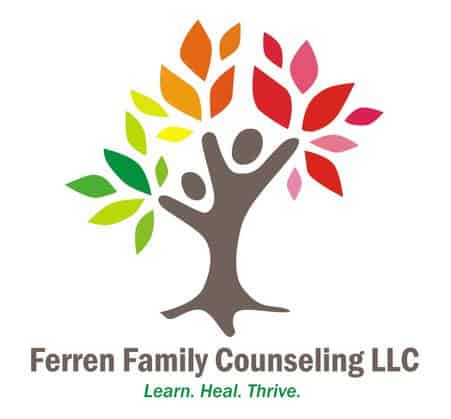by Shadeau Rhodes, LCSW, CFTP, Ferren Family Counseling
When I started writing this, I had a great idea for how to share it with the Memphis community. But it didn’t go according to plan. It didn’t feel right to write about safe places and coping skills without first acknowledging the pain in my hometown. I want to take a moment for Memphis. Memphis is hurting. We are Memphis.
We all face various environmental stressors. They come in all shapes and sizes, from everyday tasks (tolerable stress) to severe or traumatic situations (toxic stress). Some of us struggle with daily stress like jobs and school, getting chores done, and trying to balance life with ordinary demands. Some of us face traumatic stressors – surviving after a tragedy or something awful has happened. Research has shown a connection between increased cortisol (the stress hormone) and long-term impacts on physical and mental health. When we experience chronic stress, it has the ability to change us, all the way down to our nervous system. We may find ourselves “on edge,” tending to show more fidgety or restless behaviors than usual. We may have trouble sleeping or relaxing. We may even dissociate, or “check out,” more frequently. All of these are signs of an increased stress response (the fight-or-flight response).
Which brings us to this. What is a safe space? According to Merriam-Webster, a safe space is a place intended to be free of bias, conflict, criticism, or potentially threatening actions, ideas, or conversations. This space is particularly important for historically marginalized groups. We live in a world where it is sometimes hard to find safe spaces, to experience security and comfort in our experiences, and to feel seen and accepted as our authentic selves. Finding spaces with protections, such as a support network or predictability, helps buffer some of the effects of chronic stress, leading to resiliency. Safety is something everyone deserves.
There are strategies that may help us to relax, to cope with our stressors, and to find a sense of peace. A few of my favorites are described below.
Secure Place
I want you to imagine a place – a place where you have felt secure or calm. This place can be real or imagined, somewhere you’ve been before, somewhere you’ve read about, somewhere you would like to go, or somewhere made up. Let this place become yours–free of discrimination, free of criticism, free of harassment, free of harm. Focus on the image, sensations, smells, and sounds of this place. Focus on the secure, calm, inner peace you experience in this place.
3-2-1 Grounding
Look around the space that you are in right now. Without repeating (if possible), label three things you can see, three things you can hear, and three things you can touch. Take a deep breath. Label two things you can see, two things you can hear, and two things you can touch. Take a deep breath again and then label one thing you can see, one thing you can hear, and one thing you can touch.
Brain Hacks
There are four brain chemicals known as “happy chemicals.” These are dopamine (pleasure, reward), oxytocin (connection, love), serotonin (happiness), and endorphins (pain relief, mood boost). To hack these chemicals, try these ideas:
• Dopamine: Practice daily gratitude. Just name three things for which you are grateful. You can keep it simple!
• Oxytocin: Watch a couple of cute videos of your favorite animal.
• Serotonin: Practice laughing yoga. Start by smiling, then chuckle, and then increase the intensity of the laughter until you begin to really laugh.
• Endorphins: Move your body and dance!
Other strategies that may help include some of the following:
• Keeping a journal: Write about your personal experience. Notice your thoughts, emotions, and body sensations as you write.
• Listening to music, reading a book, watching a favorite show/movie
• Exercising and mindfulness: Take a walk or ride a bike. Pay close attention to your surroundings. What colors do you see? What things do you notice? How do your feet feel as they step and connect with the ground?
• Connecting with your support network and talking it out
It’s important to know which skills work best for you. Unfortunately, not every skill works for everyone. You are unique and you are your own person. Find what works best for you and use those skills when you need them.
If you need help finding a safe place or skills that work for you, Ferren Family Counseling provides client-centered therapy to help you learn, heal, and thrive. Please reach out to the office to schedule a consultation or appointment if you think it may assist with your journey!



